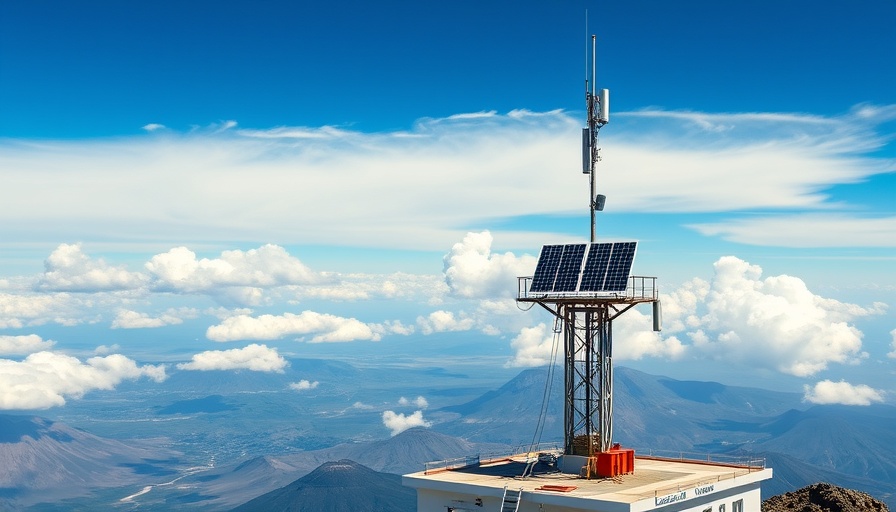
The Alarming Rise of CO2: What Does It Mean for Us?
For the first time in millions of years, Earth's atmosphere has recorded an average of 430.2 parts per million (ppm) of carbon dioxide (CO2). This staggering figure is not just a minor blip; it's a clear alarm bell of how human activities, particularly our relentless burning of fossil fuels, are impacting our planet. Achieved at the National Oceanic and Atmospheric Administration (NOAA)'s Mauna Loa Observatory in Hawaii, this number shows an increase of 3.5 ppm from just one year earlier. The director of the Scripps CO2 Program, Ralph Keeling, summarized it succinctly, noting, "Another year, another record. It’s sad." This stark declaration encapsulates the growing anxiety about our planet's health.
Understanding the Impacts of Elevated CO2 Levels
As eco-conscious individuals, it’s vital to understand how these rising levels affect not just our climate, but our health and well-being. Higher concentrations of CO2 contribute to global warming, which is linked to extreme weather events, rising sea levels, and loss of biodiversity. Each of these factors has direct implications for our health – from increased respiratory issues and heat-related illnesses to food insecurity.
Increased Air Pollution and Health Risks
Another underappreciated impact of elevated CO2 is its relation to air pollution. The more we burn fossil fuels, the more we increase the concentration of harmful pollutants like nitrogen oxides and particulate matter in our atmosphere. These pollutants lead to significant health issues, such as asthma attacks, cardiovascular diseases, and reduced lung function – especially harmful to our children and elderly.
How Can Individuals Make a Difference?
It's easy to feel overwhelmed by these statistics and the feeling of helplessness can sink in. However, there’s a silver lining! We, as consumers, hold significant power. Choices we make every day can contribute greatly to reducing our carbon footprint. Here are some actionable insights:
Embrace Sustainable Living
Consider adopting a more plant-based diet, as livestock farming significantly contributes to CO2 emissions. Small changes in dietary choices can be a game-changer in the fight against climate change.
Get Involved in Your Community
Participate in local sustainability initiatives. Whether it’s a community garden or an eco-cleanup day at your local park, engaging with others amplifies our collective impact and raises awareness.
Future Predictions: What Lies Ahead?
If we continue on the current path of fossil fuel reliance without significant reforms, scientists predict that CO2 levels may reach over 450 ppm in the coming years, which could lead to catastrophic effects on global ecosystems. This looming threat underlines the importance of increasing our commitment to renewable energy sources.
A Call for Action: It's Time to Mobilize
Reducing our carbon emissions is essential for both environmental and personal health. Mobilizing energy towards renewable resources like solar and wind, improving public transportation systems, and advocating for policies focused on sustainability can make a difference. We need to talk about these issues openly and organize more community events educating individuals on the importance of being eco-conscious.
Ultimately, addressing climate change is a collective effort that requires individual responsibility and commitment. As professionals, parents, and community members, we shape the future. Let’s not just settle for "another record." Instead, let’s aim to change the course of history by making impactful decisions today.
This is our moment to act—let's make it count. Promote sustainability, support local initiatives, and advocate for change. Together, we can course-correct in time to create a healthier planet for ourselves and future generations.
 Add Row
Add Row  Add
Add 




Write A Comment